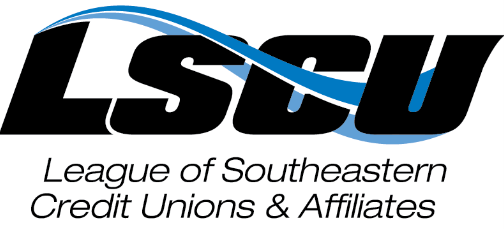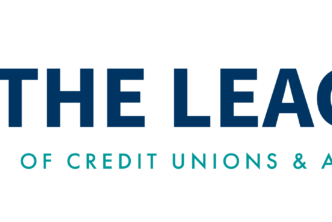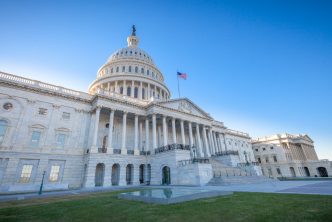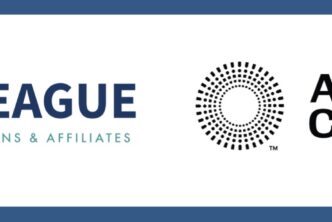Due to increased threats to overdraft and insufficient funds programs from regulatory and congressional leaders, the League of Southeastern Credit Unions (LSCU) initiated an Overdraft Working Group, comprised of credit union leaders and regulatory experts representing the entire LSCU footprint (region, asset size, etc.). The Working Group was tasked with finalizing a survey that would adequately assess the current overdraft and non-sufficient funds (NSF) practices of member credit unions.
After surveying member credit unions in Alabama, Florida, and Georgia, the Working Group guided LSCU through developing industry recommendations and best practice considerations, based on survey feedback. In addition to serving as a resource for credit unions looking to adjust their programs, the Working Group helped develop advocacy messaging and strategy to prepare for future legislation and/or regulation. We are especially grateful to the members of the LSCU Overdraft Working Group for their direction, time, and assistance on this important matter.
The survey was conducted between January 23 and February 13. Nearly 30% of the 302 member credit unions in the LSCU footprint provided a complete response. We sincerely appreciate everyone who took time to research data points and submit responses. Key findings from the survey include, but are not limited to, the following:
- Nearly 60% of credit unions have made considerable changes to overdraft and insufficient funds programs in the last three years without regulation or legislation, including, but not limited to, reducing fees on small transactions, eliminating transfer fees, promoting alerts for low balances, reducing the number of times overdraft fees can be charged over a set period, and more.
- 96% of credit unions allow balance transfers from savings to checking accounts as a first measure to result in no overdraft to the member.
- 97% of credit unions provide low balance warnings prior to charging an overdraft fee and 94% provide educational materials or alerts to frequent users. Member communication and education includes letters, calls, texts, emails, etc. Communication includes financial counseling and, when possible, loan assistance.
- 80% of frequent users are middle to high income earners. When communicating with these members, there is a clear understanding of and desire for the service rendered.
- Regulation already requires credit unions disclose fees to members annually. Overdraft courtesy “service fees” are explicitly opted in to by the member.
The most frequently cited industry recommendations shared in the survey include:
- Member Education: Provide educational resources, financial counseling or coaching for all members, especially frequent users of overdraft and NSF programs.
- Maximum Fee: Without restricting access, establish a maximum number of fees a member may accrue on any given day/month/year.
- De Minimis Transactions: Set a minimum transaction amount that would need to be surpassed prior to assessing a fee. Consider creating a tier system or setting fee based on transaction amount.
- Grace Periods: Allow members additional time to bring account positive before assessing a fee.
- Automatic Protection: Automatically transfer money from savings to checking account to prevent an overdraft fee to the member.
- Digital Banking: Ensure members are able to check available balances and pending charges 24/7.
Upon further review of the survey data, additional industry insight recommended the following considerations when reviewing current and future practices:
- Understand the impact of your current practices on members. If possible, research the breakdown of demographics (age, gender, income level) and the volume attributed to each income bracket to proactively identify frequent users and provide education as necessary. Survey feedback indicated that many credit unions could not easily obtain this information, which may require custom reporting from your core processor.
- Identify potential changes to your programs and plan accordingly, regardless of how far into the future changes may be implemented. Credit unions have made considerable changes to overdraft and NSF practices in the last few years; however, it is imperative to have a plan mapped out in the case of potential regulation or legislation. Communication from President Joe Biden and CFPB Director Rohit Chopra indicate that more progressive measures may be pursued.
- Ensure you are adequately following the Reg E opt in form and the member receives, in writing, a notice or disclosure agreeing to the overdraft service. Ensure disclosures are up-to-date and clearly describe how a member may receive an overdraft fee. Please be reminded of Model Policy 7215: Overdraft Protection provided by PolicyPro and Payments Program Checklist provided by InfoSight.
- Verify your programs match the practices of your core processor. Credit unions may be limited by their core processor on what changes they can make to their overdraft or NSF programs. As you identify potential changes to your programs, ensure they are possible with your core processor and keep these changes in mind when considering providers.
LSCU remains adamantly opposed to legislation and regulation that seeks to limit or alter overdraft services provided by credit unions. We understand overdraft programs are implemented to benefit and assist the member, and that the decision to utilize these programs is strictly the informed decision of the member. The aforementioned recommendations are based on feedback shared and data collected in response to the LSCU Survey on Overdraft and Non-Sufficient Funds Fees. As we see the Biden Administration and regulatory and congressional leaders continue with a dangerous narrative surrounding the services these fees provide, LSCU, in coordination with the Overdraft Working Group, seeks to provide credit unions and advocates with necessary resources to combat future mandates and prepare accordingly.
For further information, please contact Grace Newcombe, Senior Director of Federal Advocacy.
Thank you to the members of the Overdraft Working Group:
- Mike Akers, Bay Credit Union
- Tammy Daniels, Cindy Connelly, and Laura King: Georgia United Credit Union
- Amy Etheridge: Robins Financial Credit Union
- Robby Glore, Combined Employees Credit Union
- Kabir Laiwalla, Platinum Federal Credit Union
- Brandi McKinney, Alabama Credit Union
- Denelle Miller, FiCare Federal Credit Union
- Ashley Norris, CORE Credit Union
- Eric Nystrom, My Healthcare Federal Credit Union
- Al Rose, University Credit Union
- Amanda Ruddy, Brightstar Credit Union
- Alan Stabler, America’s First Federal Credit Union
- Parker Steele, Avadian Credit Union
- Dawn Truitt, Valley Credit Union






